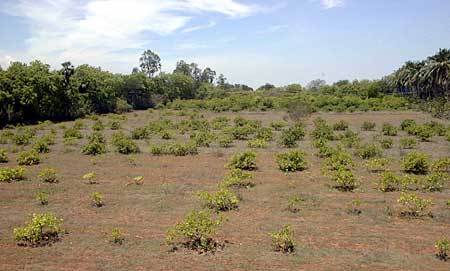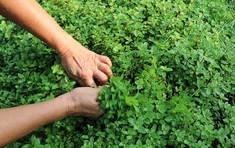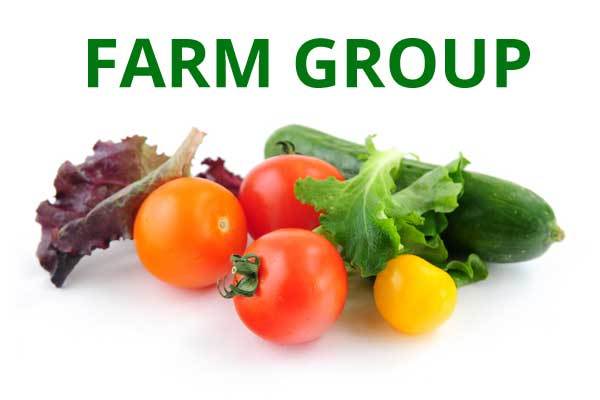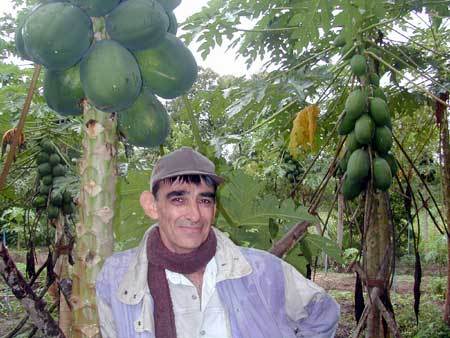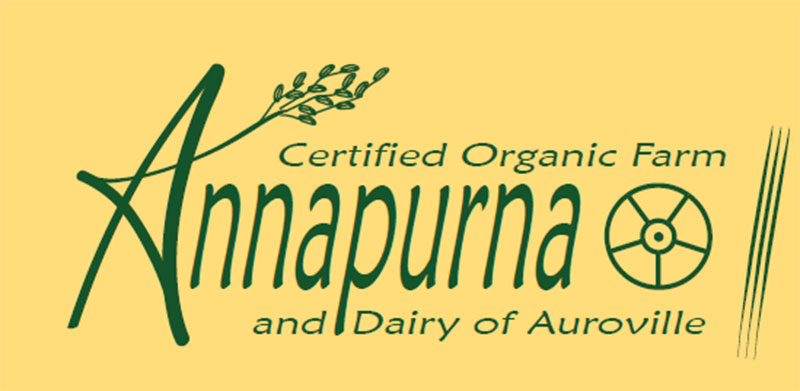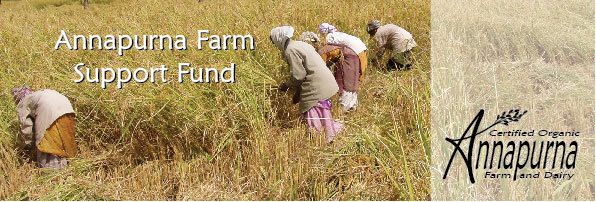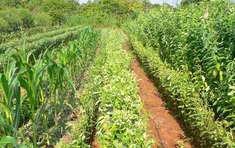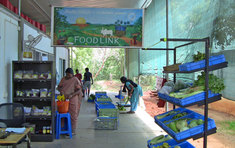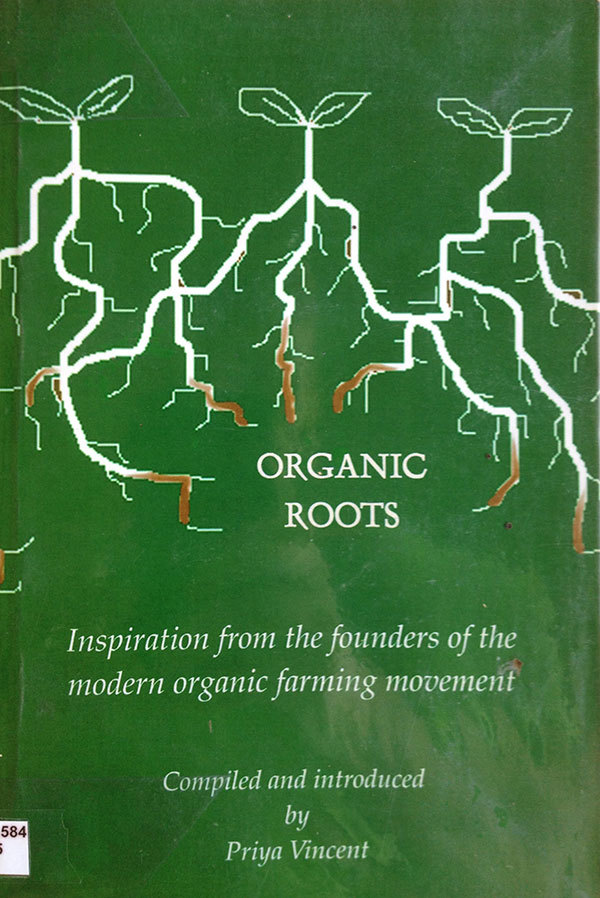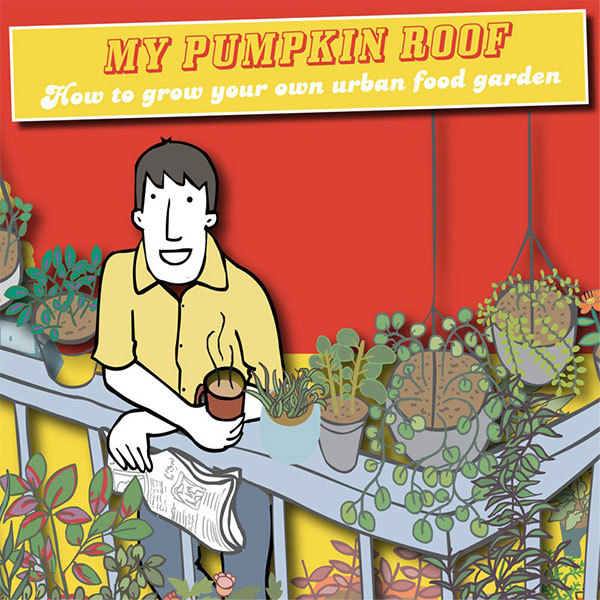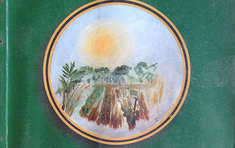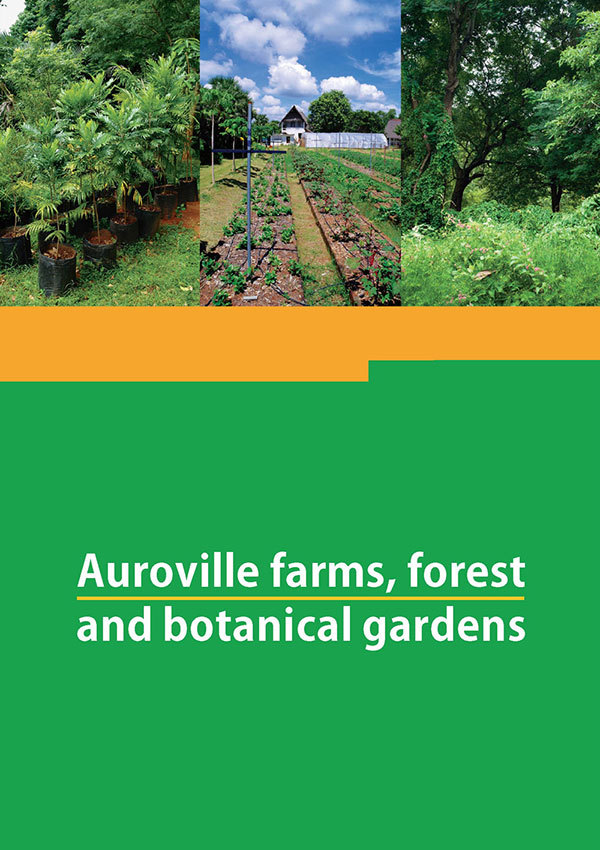Last updated:
Farming in Auroville
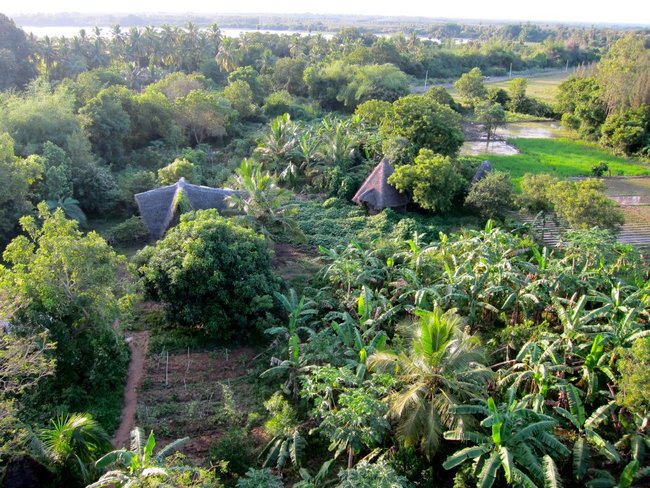
In the pioneering years, farming in Auroville was largely
empirical and spontaneous. Aurovilians who were interested in farming started
to farm on whatever land was available, some of which was quite unpromising.
They were entirely responsible for the development of the farm and for
supporting themselves from it, using a variety of organic techniques that
enabled them to grow food in the generally poor soil and difficult climate (the
main growing season from December to March is short, and both summer and monsoon
can be severe and unpredictable).
Today Auroville
has over two dozen farms, which vary greatly in size and character. Those
primarily engaged in growing Auroville’s food are united under the Auroville Farm Group,
each working with some combination of orchards, crop fields, vegetable gardens
and/or dairy. The farmers study the relationship between traditional farming
and modern agriculture, and make use of eco-friendly technologies such as
windmills (for water), solar energy, micro-sprinklers and methane gas collectors.
Each farmer can work in his own field of interest, taking into account the
quality of the soil, the availability of water, and other factors that
determine the potential of each place. The farms use a wide variety of
ecologically oriented farming philosophies, such as traditional organic,
permaculture, biodynamic, natural farming, etc., and research is done in a
number of fields.
In addition to food growing, some of the farms have other activities like food processing (cheese, jam, pickles and other value-added items help to support the farms financially), education and training, and a range of other farm-related pursuits, such as building up seed banks and procuring animal feed for the farm community.
Several small farms and forest communities, not individually listed in this section, contribute various produce, mainly fruit, to Auroville, and many Green Belt communities keep cows that supply milk for their own and neighbours’ needs. In addition, an increasing number of Auroville communities have started to grow some of their food in ‘kitchen gardens’.
Out of over 320 acres of farm land in Auroville, only about two thirds are currently under active food cultivation, with the rest used for timber-growing or left fallow. About half the land is irrigated, with the other half being used for rain-fed crops.

